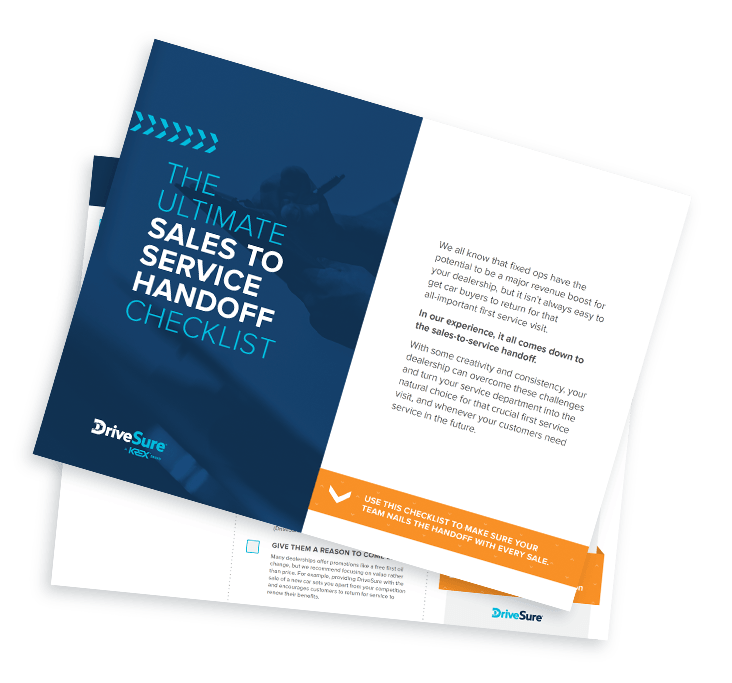This article was originally posted to DrivingSales.com
A service advisor’s job is often one with a dozen things needing attention at the same time — greeting customers, passing on work orders, checking on parts, taking calls, making calls, and more. But as we’re often reminded, there are only so many hours in a day.
If you can create a strategy to make more efficient use of their time, you don’t get more time, but you do get more done in less time. And this makes space for the most important items on their list or for the inevitable crisis that’s sure to walk in the door.
Creating a time management strategy plays out differently for everyone. But here are five tips and observations you can share with your team so that they can approach each 24-hour day as productively as possible.
1. Start early
The only uninterrupted time most service advisors can count on every day is before they open the doors and turn on the lights. There are no demanding customers or ringing phones, so this is the perfect time to review carry-overs and get early bird or night drops checked in.
It’s a great time to review and prepare for incoming appointments. Remind them to check for special order parts, previously refused maintenance or repairs, and any missing contact information. This is also a great time to have them anticipate any sales-to-service handoffs for the day. (This checklist can help them make the most of those opportunities.)
Preparing for each customer will improve their social interaction with them as well as their chances of selling additional services or repairs. Plus, being on top of their day will give them the confidence they need to do it well.
2. Make a list
We know, we know, every time anyone says anything about time management, one of the first things they mention is to make a to-do list. That’s because it really works.
A to-do list is the foundation of a strategically organized day. We suggest leaving the specifics of how your service managers make theirs and how much detail they include up to them, but we think it’s smart to encourage time to:
- Divide tasks into three priority levels: those that need to be completed today, those that are due in a day or two, and those that are a week or more out. Then go a little father and assign priority to tasks within each level: the most important task is #1, the next most important is #2, and so on. Putting the most important tasks in order will help them to see an efficient workflow more clearly.
- Decide when they’re making their list if they’re going to do a task themselves or delegate it to someone else. Encourage them to ask themselves if each task is necessary or adding value. If not, they should eliminate it.
- Assign a due date to tasks that don’t already have a clearly defined deadline.
- Eat problems for breakfast. Getting difficult or unpleasant tasks done first thing will help the entire day run smoother.
- Check items off the list as they are completed, and once an item is done they shouldn’t go back to it.
- Make tomorrow’s to-do list at the end of the day and review it first thing in the morning. If everything wasn’t crossed off the list today, encourage them to understand why before adding it to tomorrow’s.
3. Avoid known time wasters
Discipline is no easy virtue, but a certain amount of discipline is required to achieve the benefits of a time management strategy. Encourage your service advisors to keep an eye out for these time-wasting distractions in their day:
- Social media: It’s easy to go down a rabbit hole on your Facebook or Twitter accounts. Unless they’re addressing specific customer feedback, help them try to avoid spending time on those platforms.
- Personal communications: Every company has its own policy about taking personal calls or texts. Remind them of yours and explain that unless it’s an emergency, it can probably wait.
- Email: Encourage them to schedule a specific time to respond to email. Taking email as it comes in can interrupt their productivity.
- Multitasking: Help them to focus. Although having them tackle several things at once may seem as if they’re accomplishing more, studies show the opposite is true.
- Conversations: It’s common for service managers to run into a particularly windy customer, technician or salesman. Help them learn to balance polite attention but still keep the conversation on track.
4. Batch together similar tasks
Your service advisors’ day will run smoother if there’s a routine to it. For example, if they have to consult with a technician or the parts manager, they shouldn’t make a separate trip each time. Instead, they should choose a time to gather their work orders, estimates, and questions and make a tour of the service department, getting all the answers they need at one time.
The same goes for customers. It can be helpful to have them pick specific periods during the day to make customer call-backs. Or as mentioned earlier, answer email. Sitting down and handling all of these similar tasks at once is a much more efficient use of time.
The best time management strategies will help your service advisors avoid duplicating effort. Picking up the same work order multiple times during the day, for example, can really slow them down. But, if they’re aware of which tasks take longer than they should they won’t get so needlessly hung up in small details.
5. Handle priority interrupts
Any task that lands on your service advisor’s desk unexpectedly is known as a priority interrupt. Let’s say they already have a full plate when you stop by to ask for a report on billable hours by technician for the last six months — and you need it right away.
Before delivering that ask, decide if you can’t delegate it to someone else or extend the deadline. It’s important that when you need something to say, “I realize this project may interrupt your plan for today. Is there anything I can do to help you manage other high-priority tasks on your list so that you can work on this report?”
Time is on your side
We’re allotted 24 hours every day — not a second more, not a second less. At the end of the day, making the most of it all comes down to how well you can help your service advisors stay on task.
Sometimes technology can also help. If you haven’t already, consider investing in systems that not only help your team build a more efficient workflow, but also help them exceed customer expectations and provide them with an exceptional experience. DriveSure, which provides unmatched maintenance, tires, and repairs benefits to customers, is a great way to give your team that edge.
If you can help your team develop and stick to a routine, they’ll be able to find more time to do what you need to do, improve their work product and productivity, and lower everyone’s stress. And that’s a goal worth achieving.
If you want to learn more about how you can help your service writers prioritize their day, get in touch.
FREE RESOURCE
The Sales-to-Service Handoff Checklist for Creating Lifelong Customers
Unlock the secrets of mastering the all-important sales-to-service handoff and watch your customers come back again and again.


